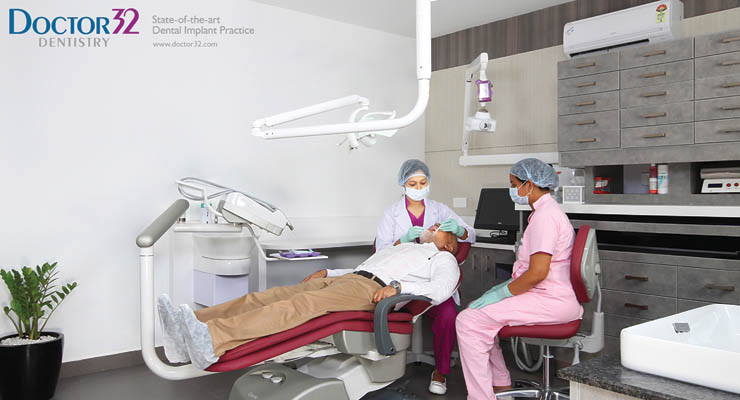Teenage Dental Care.
Generally everyone is aware of the appearance of their teeth in different degrees, including teenagers. Still, teens need to be guided to help them maintain good oral health due to their limited experience with life. Teenage is a period of changes both physically and emotionally. It is the time for self expression as well as for developing an attitude of independence. This also calls for negligence due to their busy schedules. All this results in basic dental care like regular brushing, flossing, routine dental evaluation with dentists and healthy eating habits getting compromised.
Image Credit : doctor32.com
Parents need to play a major role in helping teens.
-
Daily dental care. Teens are likely to overlook routine care due to lack of time. Parents need to make sure that their children are brushing twice daily and flossing once a day. This will protect their teeth from decay and gums from disease. Good oral hygiene makes them more attractive. Since appearance is a top priority for teens, you could find it easier to convince them on anything that enhances their appearance.
-
In-take of drinking water. Drinking plenty of water is vital to oral health as it helps wash off debris and bacteria from the mouth.
-
Eating healthy. Promote a healthy eating habit. Focus on eating nutritious food and avoiding sugary drinks and sport drinks. Sugar contributes to tooth decay. Carbohydrates and sugar create an environment for dental plaque to thrive.
-
Watch out for gum disease. Gum disease is likely to affect 60 percent of teens by the age of 15. Hormonal fluctuations during teenage makes them more susceptible to inflammation and infection of gums. Make your teens aware that sudden symptoms such as bleeding while brushing and red swollen gums need to be attended to by dental professionals.
-
Dental evaluation. Impress upon your children that regularly scheduled dental visits are not to be missed under any circumstances.
-
Teach the correct way of brushing. Use just a pea-sized quantity of preferably fluoride enriched tooth paste. Angle the toothbrush at 45 degrees towards the gum line. Practice a gentle circular motion. Use the same action on the inside surfaces of the teeth. The chewing surfaces should be brushed with a backwards and forwards motion. Soft bristled brushes are ideal to protect tooth enamel. Long handled brushes help reach all teeth with ease. Also, a small headed brush will be able to move freely in the mouth. Let the dentist show your children the correct flossing techniques as well.
Dental sealants.
In children most cavities are formed on the chewing surface of teeth. Dentists usually recommend dental sealants to counter this problem. A dental sealant is a plastic coating that is bonded to the chewing surface to prevent plaque build-up as well as tooth decay. It is easy to apply and does not cause pain or discomfort.
Orthodontics.
Baby teeth usually play a big role. They are responsible for guiding the adult teeth into the correct spot and position. When children lose baby teeth earlier than normal, adult teeth could shift positions. Treatment by an orthodontist is essential in such situations.
How to save a knocked-out tooth.
Find the tooth. Hold the tooth only by its crown, without touching the roots. Rinse it in milk or saline (salt) water for a few seconds to clean any dirt off. Make sure the tooth doesn’t dry out. Place tooth back in its socket as quickly as possible. Hold the tooth in place. A cotton ball, a clean handkerchief or a moistened tea bag can be used in between, to lightly bite on. The key is to get to your dentist as fast as you can.
Being aware, and seeing your dentist at regular intervals will help children develop a discipline to maintain oral health in future life. Problems detected early can be fixed easily.





